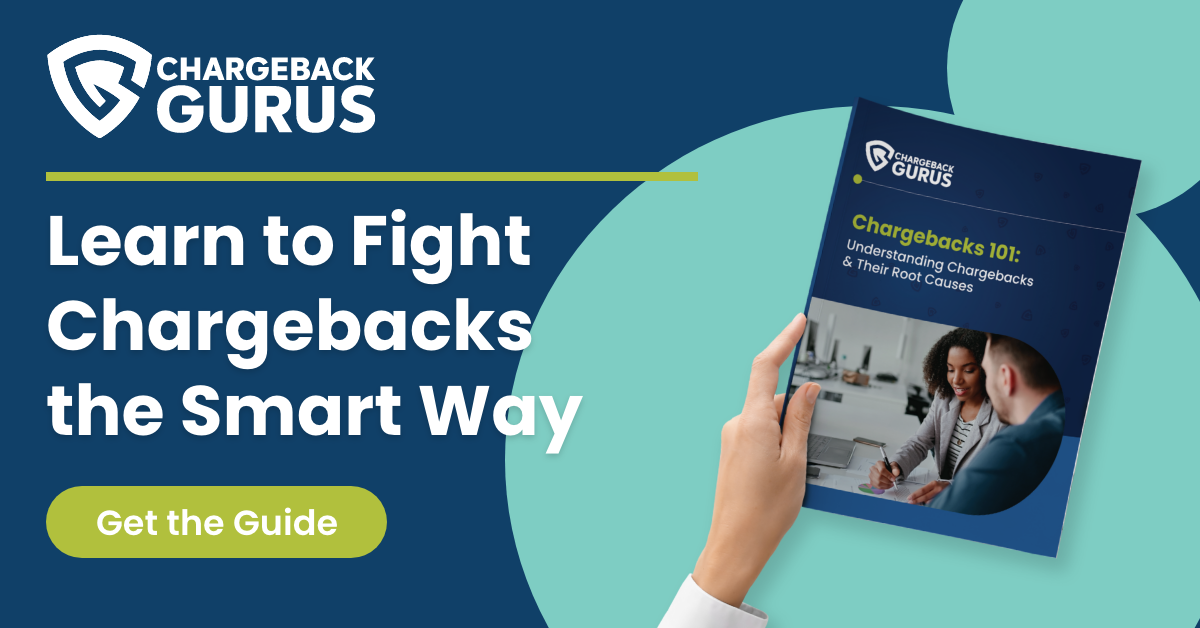First-Party Fraud: A Merchant's Guide
In the ever-evolving world of chargebacks and fraud, first-party fraud stands as a unique and perplexing challenge for merchants. It skirts around typical fraud detection methods and can be difficult to identify even after the fact without the right tools.
In this article, we'll provide an in-depth exploration of first-party fraud, along with comprehensive prevention and mitigation strategies that merchants can employ to safeguard their businesses effectively.
What is First-Party Fraud?
First-party fraud, also known as first-party misuse, refers to fraud committed by genuine cardholders, typically in the form of fraudulent chargebacks. Unlike third-party fraud, where unauthorized individuals use stolen account information, these transactions appear legitimate, making detection and prevention challenging.
In the context of finance, first-party fraud can also refer to a person obtaining credit or loans they don't intend to pay back. However, we'll be focusing on the type of first-party fraud that directly affects merchants.
 First-party fraud perpetrators can be motivated by various factors, including financial desperation, personal gain, or a desire to exploit weaknesses in the system.
First-party fraud perpetrators can be motivated by various factors, including financial desperation, personal gain, or a desire to exploit weaknesses in the system.
Financial hardship, addiction, or a sudden change in circumstances may lead some individuals to engage in first-party fraud as a way to alleviate their problems temporarily. Others may resort to fraudulent chargebacks to seek refunds outside the merchant's policies or to obtain goods or services without proper payment.
The consequences of first-party fraud can be severe for merchants. Every chargeback can result in a total loss of up to 2.5x the original transaction amount. If the problem becomes severe enough to raise a merchant's chargeback ratio above 0.9%, card networks and issuers may impose additional fees and penalties. In extreme cases, merchant accounts can even be terminated and the merchant placed on the MATCH list.
How Can Merchants Prevent First-Party Fraud?
Preventing first-party fraud is difficult, as traditional fraud detection tools designed to identify discrepancies in customer information won't be able to detect it. A merchant's most effective tools involve disincentivizing first-party fraud and eliminating customer confusion where possible. Here are a few tips that can often help to reduce this type of fraud:
Clear Communication
Transparent and concise communication is essential in establishing trust between merchants and customers. Merchants should clearly outline their policies, terms of service, and refund processes on their websites and during the checkout process. Customers need to understand the steps to resolve any disputes or issues they may encounter, reducing the likelihood of resorting to first-party fraud as a means to resolve conflicts.
Excellent Customer Service
Providing exceptional customer service can act as a powerful deterrent against first-party fraud. By offering responsive and personalized support, merchants can address customer concerns promptly and provide satisfactory resolutions to any problems.
A positive customer service experience fosters a sense of trust and loyalty, discouraging customers from resorting to fraudulent chargebacks.
A refund is always less costly than a chargebacks, so merchants should consider carefully how strict their refund policies should be and how much leeway customer service representatives should have to issue refunds outside those policies.
Order Intelligence Tools
Leveraging order intelligence tools like Order Insight and Consumer Clarity—which apply to Visa and Mastercard transactions, respectively—can help to prevent potential instances of first-party fraud. These tools allow merchants to share order details with issuers in real time when a customer calls in to dispute a transaction.
If the customer was about to file an illegitimate dispute by mistake, these order details can help remind them what the charge was for and clear up the confusion. In cases of intentional first-party fraud, sharing these additional details can sometimes dissuade potential fraudsters by convincing them their attempt would not be successful.
How Can Merchants Fight First-Party Fraud?
Despite taking proactive measures, not all first-party fraud chargebacks can be prevented. In such cases, representment becomes a vital strategy for merchants to fight back and protect their businesses.
When faced with a chargeback that is a result of first-party fraud, merchants can gather compelling evidence and present a strong case to the issuing bank. The issuing bank will then decide whether to reverse the chargeback and return funds to the merchant or uphold it.
 Representment requires meticulous documentation of order details, shipping information, and customer communication to prove that the transaction was legitimate. It also requires merchants to specifically address each customer claim, so a one-size-fits-all dispute package won't be effective.
Representment requires meticulous documentation of order details, shipping information, and customer communication to prove that the transaction was legitimate. It also requires merchants to specifically address each customer claim, so a one-size-fits-all dispute package won't be effective.
To more effectively fight these chargebacks, merchants may wish to engage the services of a chargeback management company. Chargeback experts possess in-depth knowledge of first-party fraud tactics, industry regulations, and representment best practices. Collaborating with experienced professionals empowers merchants with the expertise needed to build strong cases and maximize their chances of reclaiming funds lost to first-party fraud.
Conclusion
First-party fraud continues to be a challenging and persistent issue for merchants and chargeback experts. Understanding the motivations and tactics behind this type of fraud is crucial in devising effective prevention and mitigation strategies.
By fostering clear communication, providing exceptional customer service, and leveraging order intelligence tools, merchants can proactively prevent first-party fraud. In cases where first-party fraud results in chargebacks, representment becomes a powerful tool for merchants to fight back and protect their businesses.
As the landscape of fraud continues to evolve, merchants must remain vigilant, continuously adapt their strategies, and collaborate to create a secure financial ecosystem for all stakeholders involved.
By implementing these preventive measures and leveraging representment as a defense, merchants can successfully combat first-party fraud and maintain the integrity of their business operations. Together, merchants and chargeback experts can work towards a safer and more resilient financial landscape, safeguarding businesses and customers alike.
Thanks for following the Chargeback Gurus blog. Feel free to submit topic suggestions, questions, or requests for advice to: win@chargebackgurus.com



